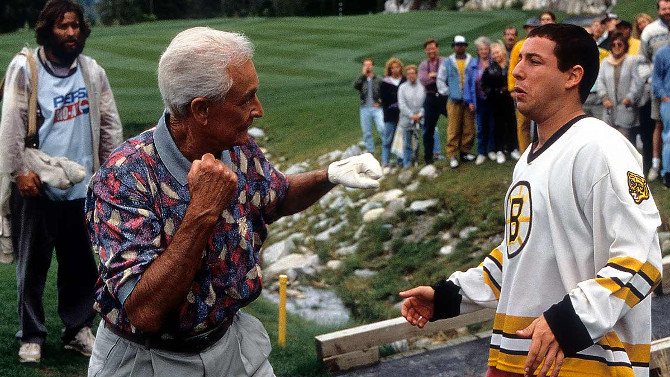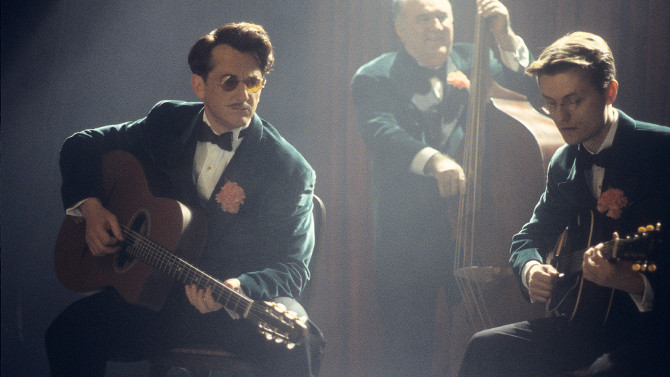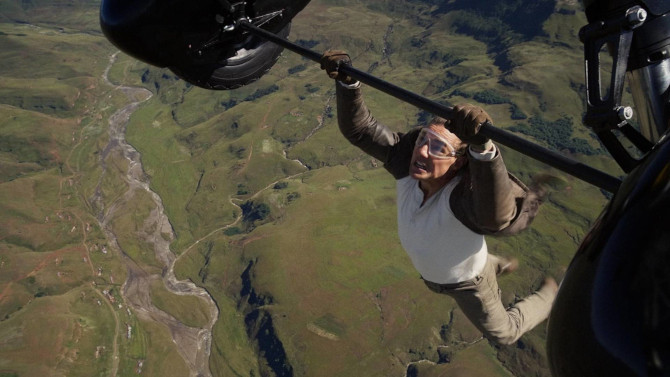
An Impossible Mission
How do you wrap up a franchise like Mission: Impossible? That is, if this even is the final installment... as they’ve made it sound (while at the same time, stars not named ‘Tom Cruise’ pipe up and suggest that might not be so). It has been twenty-nine years, with different writers and visionary directors – from twisty Brian De Palma and the action hair stylings of John Woo, to the lens flares of J.J. Abrams and animation expert Brad Bird, it was only about ten years ago that the franchise decided to opt for The Usual Suspects scribe Christopher McQuarrie for the final four. To return to that opening question once more, you could end with a Sopranos’ style cliffhanger, simply make another entertaining movie like the many before – like Everybody Loves Raymond did it with its final episode, or try to tie everything up in a neat little bow by bringing everything together as the Daniel Craig era did with James Bond. Well, it is definitely more along the lines of the latter example, with some distinct differences.
-
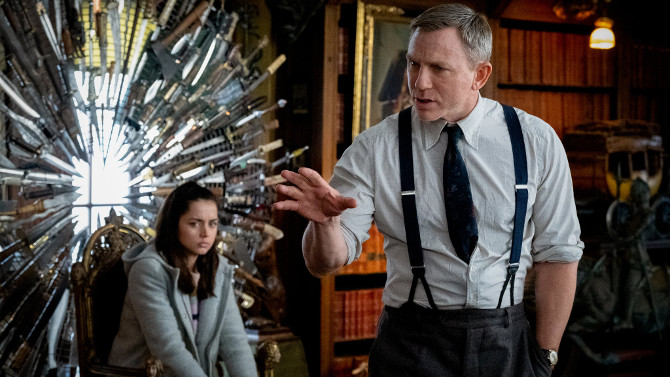
Blanc Check
Knives OutApril 6, 2020An Americanized twist on the Agatha Christie murder mystery, Rian Johnson writes and directs Knives Out (2019), an entertaining crime-centric dramedy that earned him an Academy Award nomination for Best Original Screenplay. Centred on the suicide (or is it murder – cue the dramatic music) of famed crime writer and patriarch Harlan Thrombey (Christopher Plummer), he was the centre (and benefactor) of his entire family. Though this is the genesis event, the main player is actually his kind-hearted and thoughtful caretaker/nurse, Marta Cabrera (Ana de Armas) – someone who is constantly reminded by Harlan’s relatives that she is a part of the family (despite them claiming she is from Ecuador, Cuba, Uruguay, Paraguay and Brazil – definitely part of the family). With a really weird disorder, she vomits anytime she attempts to lie – not good in a murder mystery.
-
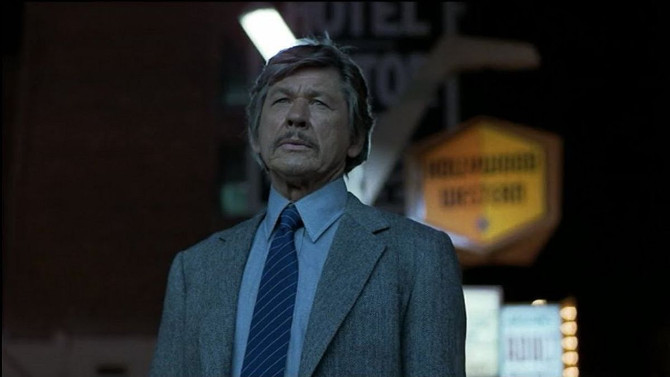
When You Wish Upon a Death Star
Death Wish IIApril 4, 2020Sequels are a fickle matter. Nearly impossible to match the original’s magic in a bottle, they tend to become a greatest hits of the previous effort. . . less story and more about outdoing the first film’s visual antics – attempted appeasement for fans and more fodder for its detractors. This is no different for 1982's Death Wish II (coming to theatres a lengthy eight years later), director Michael Winner and star Charles Bronson coming together for another vile look at the seedy side of big city America. Set two years after the original, Paul Kersey (Bronson) has uprooted from New York to Los Angeles. . . the architect finding love once more, this time in the arms of reporter Geri Nichols (Jill Ireland – Bronson’s wife and frequent collaborator – a whopping 16 times). His daughter Carol (Robin Sherwood), after the heinous acts seen in the first film, is slowly making progress with her doctors – at least uttering a few quiet sentences each week.
-
Star Pick with Oliver Phelps
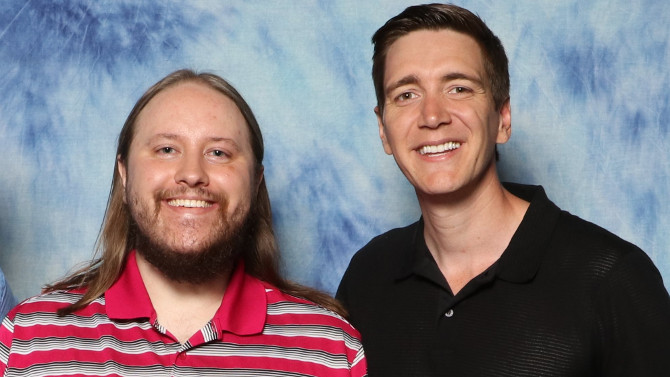 Happy EndingHappy GilmoreApril 1, 2020
Happy EndingHappy GilmoreApril 1, 2020To bring you back to a Star Pick interview I posted a few months ago, actor James Phelps revealed his favourite film to me as his brother prodded him playfully – here is the entertaining retelling: a self professed history buff, as James spoke of his love of the film The Lives of Others (its engrossing story, fascinating characters and intriguing visuals immediately catching his cinematic eye), Oliver chimed in, with a rascally smile – “It’s also because he is a secret Communist”. . . James firing back, “I wouldn’t go that far” – his own face featuring an impish grin. Capturing the same dynamic found in their most famous roles, the pair are like a vaudeville act, finely tuned, James playing the straight man to Oliver’s more overt comedic personality. The famed Weasley twins from the Harry Potter franchise, the pair are known the world over as the scampish older brothers of Ron – roles that provided them with many of the best laughs found throughout the eight movies. Having left you hanging a bit longer than you might have liked, I am sure that many of you have probably been wondering just what Oliver chose as his favourite film.
-
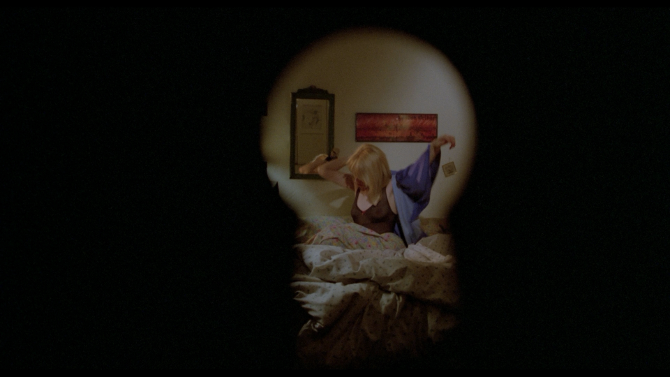
What’s In a Name?
OliviaMarch 29, 2020Are you in the mood for a Taste of Sin. . . perhaps with a dash of Double Jeopardy. . . and what the heck even is a Prozzie (for those of you not in the know, it is slang for a prostitute). . . or, to end with the most generic and lackluster of all, meet Olivia. Every once in a while, you’ve just got to love finding a little known, underground, low budget B movie that has stayed hidden from most of the world since its release (in this case, 1983), and Olivia (which was also released under the three other titles mentioned above) fits the bill. A film that pulls a bit from Alfred Hitchcock’s Vertigo (you might also recognize some similarities to Marnie and Psycho), as well as from the luridly entertaining crime and thrillers coming out of Europe the decade previously (gialli and poliziotteschi), and a number of other sources, co-writer/director Ulli Lommel (who was a frequent collaborator with acclaimed Rainer Werner Fassbinder), introduces us to poor Olivia (Suzanna Love as an adult; as a five year old – Amy Robinson), a young woman who has been dealt a poor hand in life. Growing up with her prostitute mother overlooking London bridge, she witnesses her mom’s demise at the hands of a sadistic American soldier (Nicholas Love). . . flash forward fifteen years, and she has found her way into the arms of the first brute she bumps into, Richard (Jeff Winchester) – already four years married to the uncouth, violent factory worker.
-
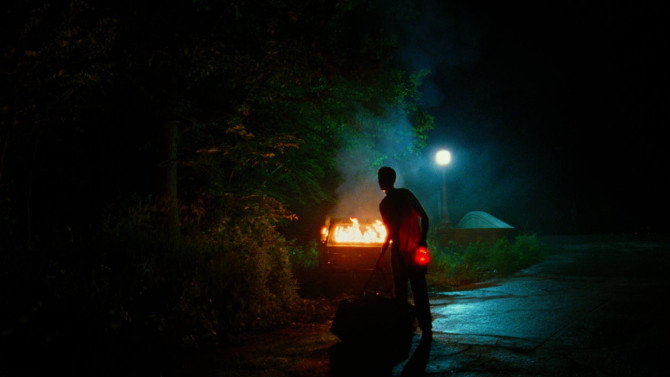
Going Under
Lost RiverMarch 27, 2020Ryan Gosling’s first, and to date, only writing and directing credit, 2014's Lost River is by no means a film for everyone. . . an arthouse style dark fairytale with tinges of gialli violence and colour, the actor turned filmmaker sets in place a slow, unsettling mood that will either hold you in its oppressive grip, or might just leave you up the creek without a paddle. The title a reference to the town in which we are dropped into, it is like much of smaller town America (and some of larger city America as well – it is actually filmed in Detroit), a crumbling locale where many young folks have fled, businesses sit empty, roving gangs of hoodlums burn houses for the fun of it, and everyone lives in a dystopic-like fugue state of depressed apathy.
-
Star Pick with Cliff Williams
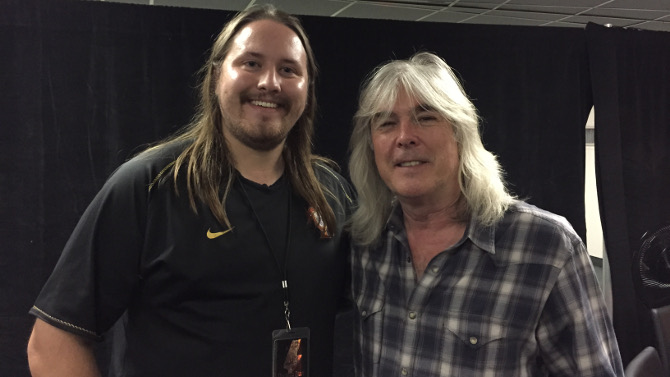 Ray of FlightSweet and LowdownMarch 24, 2020
Ray of FlightSweet and LowdownMarch 24, 2020The bass backbone (and backing vocalist) for AC/DC for almost their entire run at the top of the hard rock game, there is no doubt that Cliff Williams is an icon of the rock world. Joining the band in 1977 (just a few short years after their founding in 1973/74), taking over for original bassist Mark Evans, Cliff, along with drummer Phil Rudd (and Chris Slade – their drummer from 1989-1994 and presently – who has also been interviewed here at Filmizon.com), and Malcolm Young (nephew Stevie Young took over after Malcolm’s death), have been the ever solid rhythmic spine for Angus’ soaring guitar solos and Brian Johnson’s unique vocals (the man took over for Bon Scott after he died in 1980). . . or, as Cliff puts it, “I try to create a bottom layer that drives what our guys are doing on top”. Touring since their 1977 “Let There Be Rock” album, and the bass player on their albums starting with 1978's “Powerage”, there are not many musicians who have been seen or heard around the world more than Cliff. An inductee to both the Australian Recording Industry Association’s Hall of Fame and the Rock and Roll Hall of Fame (as of 2003), he has done it all, and really, there is not much more needed to be said than that.

